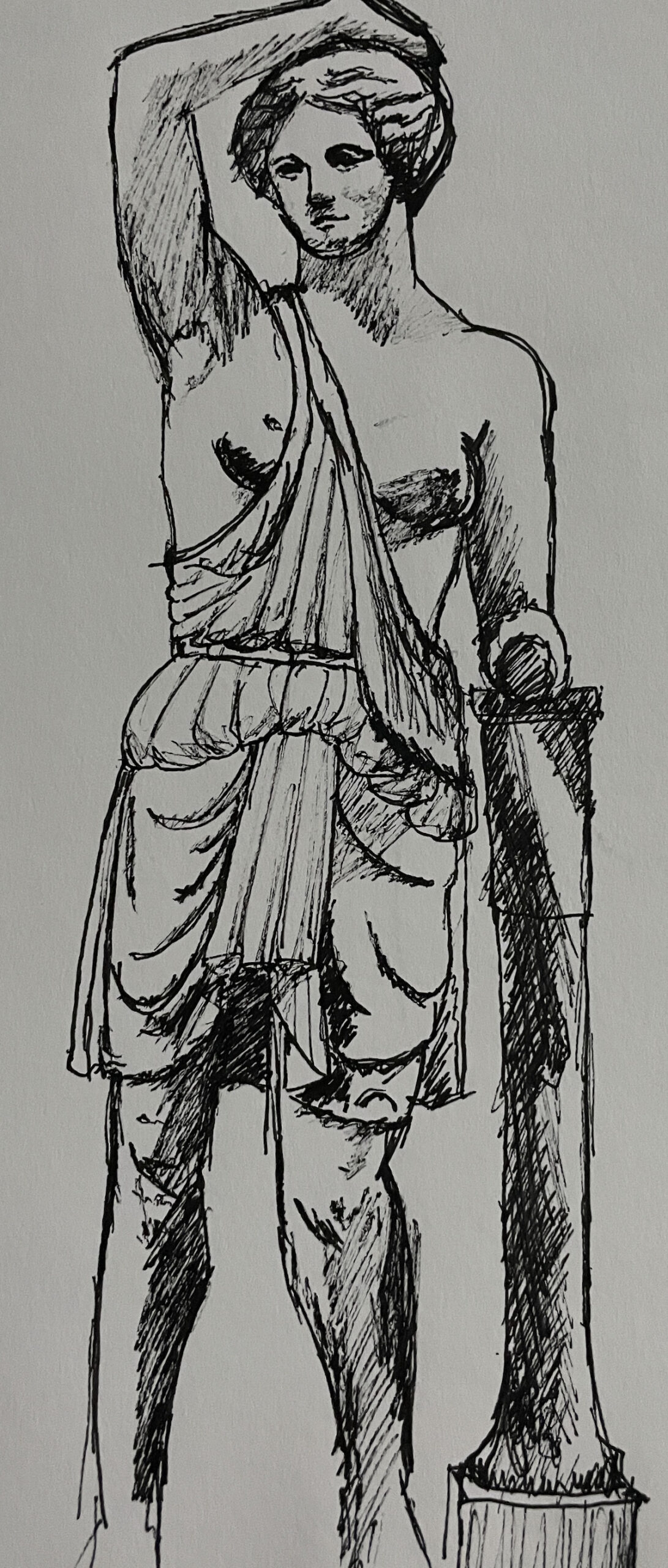By Samantha Pious
he said to a seminarful of nodding heads
“I know you feel strongly”
(he lowered his eyes sympathetically toward my chest)
“about her fragments, but you need to face
the reality that we have no way of knowing
authorial intent
in this or any other case”
Shakespeare’s bones lie mouldering under the Stratford church
but I don’t hear you singing his threnody
yes I too have read
the seminal work of Barthes deconstructing the Author
& Foucault frankensteining him back together again
I am here to tell the theorists to speak for themselves
while it may be true for you
that linguistic signs are arbitrary conventions
that authors are cultural constructs, figments of our collective imagination
and that categories such as “woman” and “lesbian”
(not that it would ever occur to you to mention
bisexual) are not only fictional but exclusionary and unwelcoming
while all this may be factually accurate
according to the Norton Anthology of Theory & Criticism
I would argue
even if there were no causal relationships between morphemes and phonemes
the task of the Poet is to create them
does not onomatopoeia have an entry of its own
in the Princeton Encyclopedia of Poetry & Poetics
even though the mind of the Poet is always unknown to the literary scholar
no body can deny there is
a hand that writes a mouth that speaks
poets often live hand to mouth
we are not yet brains
in jars artificial intelligence too must be stored in physical form
* * * * *
I tell you, the second coming of Sappho may yet be at hand
one fine day
an assistant archivist might very well unearth
a box of previously undiscovered papyrus scrolls
in excellent condition
almost perfectly preserved
containing a few hundred lyric poems in Aeolic Greek
together with musical notation
dating from ca. the early to mid-sixth century BCE
on that day
a team of archaeologists
will exhume the fragments of a tortoise shell
and seven shriveled strands of catgut
at Mytilene
a battle for the soul of scholarship will rage
how many pages bright with fresh red stains! what internecine strife
and treachery! such promising careers cut off so young
(publishers will plan for the long war)
in this year of plague and fire
and the implosion of the academic job market
truly, I tell you, the second coming of Sappho is at hand
* * * * *
for even as we speak
a small dark woman in a linen bed-sheet
walks with her harp along the Brooklyn Bridge
she circles the police and city halls
and passes by the two construction sites
near Forty Wall Street and the Stock Exchange
then pays the ferryman
Liberty may be closed to the public
but will that stop her?
like a quince-apple ripening atop the golden torch
is she singing a folk song?
chanting a manifesto?
though the words are unclear
it is Sappho’s voice that unmistakably resounds
through the ocean air
hundreds of thousands of bi and lesbian women take up her chords
from Broadway-star sopranos
to those who never thought we could carry a tune
we thrill, we throb, we thrum
her music sweeter than honey on our tongues
Sappho has come again
and with her we come
again and again and again
* * * * *
someday
when you are as dead as Shakespeare
someone (fem. pl.)
will remember us
Samantha Pious is a translator, poet, editor, and medievalist with a PhD in Comparative Literature from the University of Pennsylvania.
Featured image: Drawing by Samantha Pious

